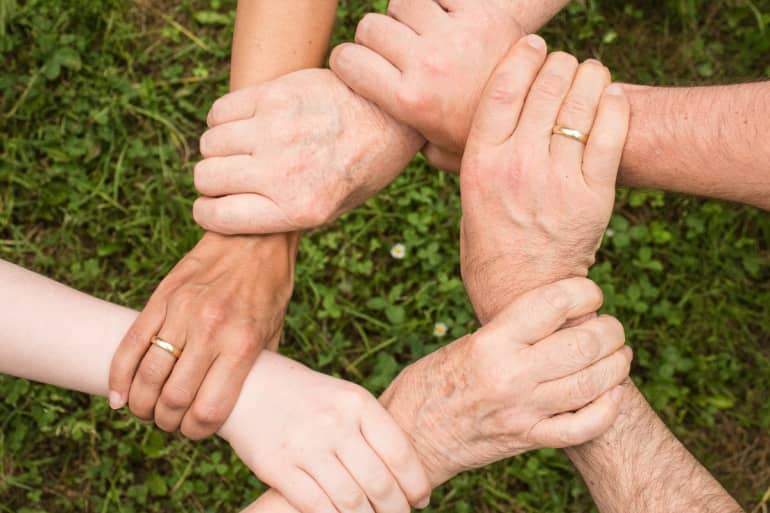In 12-Step recovery, addiction is often referred to as a “three-part or threefold illness.” This “illness” is composed of what is known as “the physical allergy,” “the obsession of the mind,” and “a spiritual malady.” In recovery, whether it be 12-Step or term-specific, the goal is to address these three issues so the first two can be contained and the last one can be maintained. When this is achieved, there is a good chance for a healthy, successful long-term recovery, including the ability to successfully overcome cravings.
Understanding the Reality of Cravings in Recovery
Perhaps the most relevant piece of the threefold illness that relates to the ability to overcome cravings is “the obsession of the mind,” though, of course, the three are wholly intertwined. This mental obsession is where cravings reside.
The mental obsession occurs when thoughts about drinking and using substances become repetitive, intrusive, and ultimately destructive. These thoughts may include thinking about what it would be like to be able to drink without consequences again. For example, a person may ask themselves, “What kind of new alcohol and substances are on the market?” Meanwhile, it is not unusual to obsess over taking a drink or drug to cope with underlying emotional issues that come up in recovery.
The truth is that these emotional issues will almost certainly arise in recovery. Just because a person is in recovery does not mean that other issues in their life will lose their challenge. In 12-Step recovery, this is often referred to as the need to “live life on life’s terms.” This includes the need to overcome cravings when they materialize.

Dealing with drug or alcohol cravings years into sobriety still requires self-awareness and patience. Call Hawaii Island Recovery today at (866) 390-5070.
More infoCreating a Plan to Address Cravings When They Come Up
Cravings are not just phenomena that happen in early recovery. Many people have succumbed to cravings and ultimately relapsed long into recovery. Now, this is not because they are weak-willed or actually wanted to take a drink or a drug.
As mentioned earlier, addiction is “cunning, baffling, and powerful,” and it does not want to go away on its own. In fact, because addiction is a chronic disease, it will almost rarely go away on its own. In most cases, the effects of addiction will almost always worsen over time without some form of intervention.

Thus, an individual who succumbs to cravings is merely one who did not have a proper plan for addressing them, or they may have forgotten the effective tools that can be utilized to overcome cravings. This most commonly occurs when an individual shifts away from their recovery plans, goals, and community.
Some Effective Tools to Overcome Cravings
There are many effective tools that can be used to overcome cravings. These tools and techniques also vary depending on the type of recovery an individual is engaged in, such as 12-Step, SMART, or Dharma recovery (just to name a few). However, the following are a few broad-spectrum techniques that can be employed regardless of a specific recovery program:
- Ensuring a strong recovery network that includes both recovery professionals and recovery peers
- Hold onto some simple maxims that can be used as a reminder that everything will be okay, such as “This too shall pass,” “One day at times,” “Easy does it,” and “Live and let live”
- Utilizing a practice known as “Pause,” which simply means to step back, take a breath, walk away (if possible), and call someone who can help
- Being open and honest about cravings to other people in recovery, as they will relate to it and understand
- Telling a therapist or doctor when a current recovery plan isn’t working and working together to modify it accordingly
But What if My Recovery Tools Aren’t Enough to Overcome Cravings?
When nothing previously mentioned seems to be working with carvings, it is important not to get discouraged. This includes if the craving becomes too much and a relapse occurs. Understand that it is never too late to start over. Remember, it is not how one falls but how they get back up.

It is when nothing else seems to work that it may be beneficial to get back to the basics. When Bill Wilson and Dr. Robert Holbrook Smith cofounded Alcoholics Anonymous (AA) roughly 88 years ago, they did so upon two primary, yet simple, premises. The first premise is that the only way to recover from addiction is to work with others who are struggling with addiction. This offers the necessary break from feelings of isolation and personal experiences of cravings by surrounding oneself with others who firsthandedly understand the struggles of recovery.
The second premise is giving one’s life over to a “Higher Power of their own understanding.” Now, it is important to note that this doesn’t have to be any sort of specific religious God (though, for many, it is). Rather, a higher power can be anything that can be relied upon when others fail. Ultimately, simply giving over one’s problems to the universe, such as overcoming cravings, fosters much greater peace than attempting to control them.

Overcoming cravings in recovery can feel challenging, but it is possible. Hawaii Island Recovery can help you on your journey. Call us today at (866) 390-5070.
More infoIt’s the Journey, Not the Destination, at Hawaii Island Recovery
Here at Hawaii Island Recovery, we understand that long-term recovery can be challenging. Many of us in our rehab in Hawaii have been there and have recovered ourselves.
However, when challenged and all the tools don’t seem to work, just remember that every person is deserving of a worthwhile life free from the grips of substance abuse. Recovery is about the journey, not the destination, and sometimes, when the road gets rocky, we discover how strong we really are.
Cravings often occur on the road to recovery. While they don’t manifest for everyone, this is perfectly normal. They can also become very strong in moments of stress and uncertainty. When we reach a vulnerable place and cravings become strong, it is important to learn how to work through them in a safe and healthy manner. The good news is that there are many effective tools and techniques to help manage and mitigate these cravings, such as identifying triggers, staying connected to a recovery community, and staying educated about how addiction can be “cunning, baffling, and powerful.” For more information about effective treatment options and how to overcome cravings, reach out to Hawaii Island Recovery today at (866) 390-5070.
 Hawaii Island Recovery
Hawaii Island Recovery 










